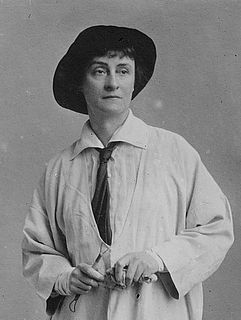A Quote by Sylvia Plath
It seems this is an age of clever critics who keep bewailing the fact that there are no works worthy of criticism.
Related Quotes
First one gets works of art, then criticism of them, then criticism of the criticism, and, finally, a book on The Literary Situation , a book which tells you all about writers, critics, publishing, paperbacked books, the tendencies of the (literary) time, what sells and how much, what writers wear and drink and want, what their wives wear and drink and want, and so on.
Read as little as possible of literary criticism - such things are either partisan opinions, which have become petrified and meaningless, hardened and empty of life, or else they are just clever word-games, in which one view wins today, and tomorrow the opposite view. Works of art are of an infinite solitude, and no means of approach is so useless as criticism.
As far as criticism, I don't mind critics. I mean, I wrote for 'Rolling Stone' for a hot minute. I like criticism. I enjoy criticism. The thing I don't like is cruelty for cruelty's sake. You don't have to be a jerk to say something negative. You can say something in the negative sense and have class.
I think that female musicians are constantly fighting an uphill battle in general. Even when I'm not writing heartbreak songs... the fact that songwriting is so difficult and music criticism has become so content driven means that sometimes critics can go for the easy descriptors rather than an in-depth analysis.
I use biography, I use literary connections (as with Platen - this seems to me extremely helpful for appreciating the nuances of Mann's and Aschenbach's sexuality), I use philosophical sources (but not in the way many Mann critics do, where the philosophical theses and concepts seem to be counters to be pushed around rather than ideas to be probed), and I use juxtapositions with other literary works (including Mann's other fiction) and with works of music.







































